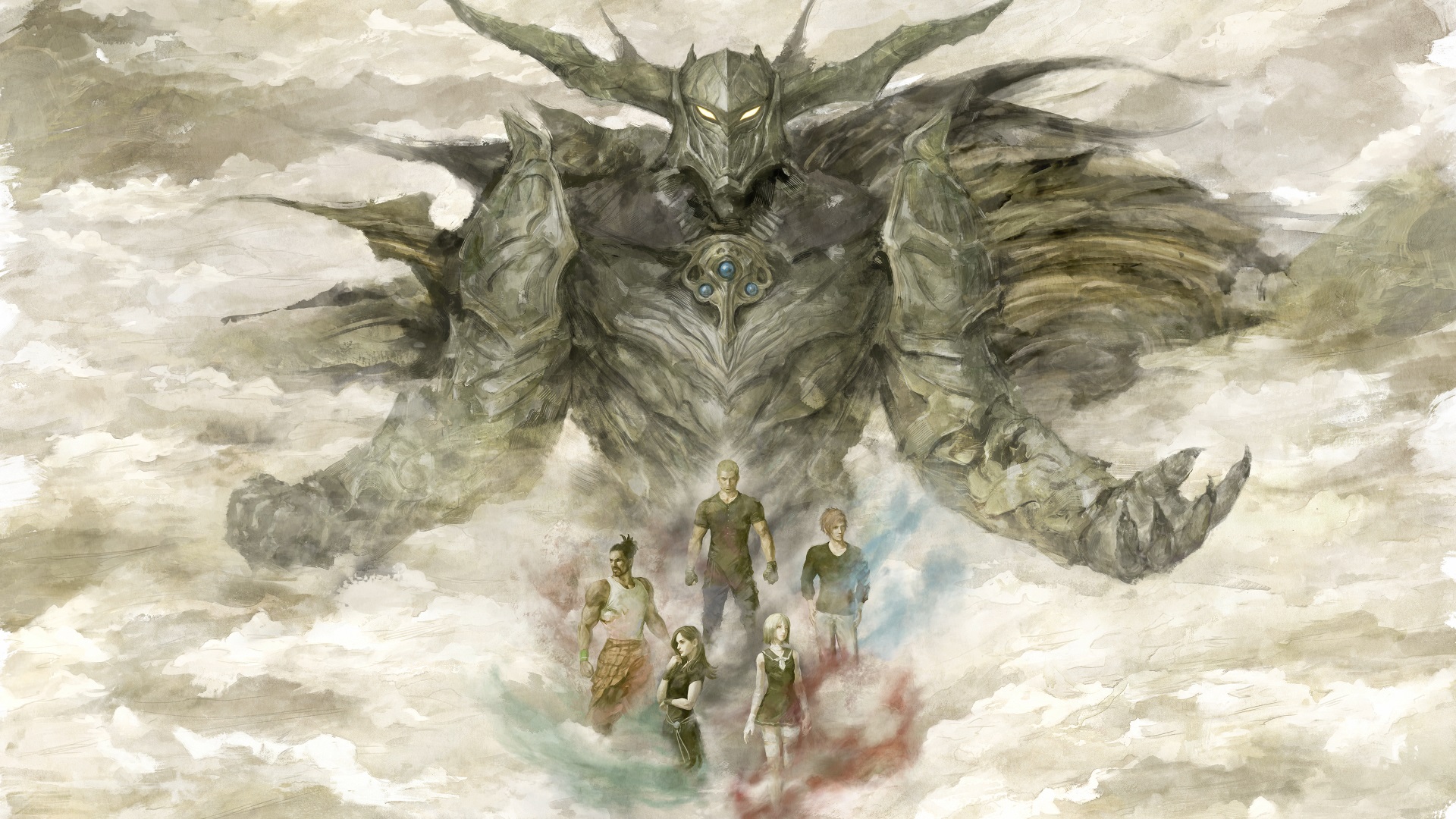Stranger of Paradise: Final Fantasy Origin
No Chaos? Become The Chaos
The Stranger of Paradise: Final Fantasy Origin demo was an important, if not pivotal, point in the game's development. Since its announcement a year ago, the memes have intensified. Yet, underneath the edge and its absurdity was a very solid gameplay experience left to be discovered. Over the game's first three levels, Team Ninja made it clear that this game would be a love letter to Final Fantasy as a whole. None of this was made more certain than the game's second level, a recreation of Final Fantasy 14's first dungeon, Sastasha. Stranger of Paradise doesn't throw its references in the players' faces, rather, it relies on the player to have a "Eureka!" moment.
Even if its player base hadn't played every single Final Fantasy, Team Ninja made sure the gameplay spoke for itself. During the demo, I was excited to unravel more of the game by discovery rather than reaching the end of the demo. I was able to delve into the depths of the class system, unlocking the Advanced class, Red Mage, by leveling Swordfighter and Mage. These Advance classes can evolve into Expert classes, effectively tripling the number of available classes. By the end of the demo, I wanted to play the full game and that is the point of a game demo, to entice its players to play the full version. Stranger of Paradise certainly did that for a lot of players and now it's time to see if it carries that momentum.

Save Data Transfer Is Seamless Between Demo And Platforms
As promised by the game's developers, progress made in the Stranger of Paradise demo carries over to the main game. Fortunately, the process is seamless, as the game detects the saved data and transfers it automatically. If for some reason, the player still wished to access the demo, they could do so after the data's been transferred. Differences between the demo and the retail game include an easier-to-read world map. In the demo, there are side missions that are unlocked once the main mission is concluded. There are no indicators that these are unlocked, yet the retail version separates the two types with different colors.
One feature that's included in Stranger of Paradise is the ability to upload saved data to a cloud. That data can be transferred to and from the PS4 and PS5. This makes it perfect for players like myself who only have a PS4 at home, meaning I could continue my playthrough outside of work with no problem. Another thing that transfers from the demo to the retail is the trophies since the former doesn't exist for obvious reasons. Those who completed the demo would unlock three trophies by default, one for each level, while others who unlocked Advanced and Expert classes will unlock those trophies as well.

Stranger of Paradise's Class System Is Like Being In A Candy Store...Of Chaos
My first impressions on Stranger of Paradise here will generally piggyback off of my comments from the demo. To avoid repeating myself, I'll cover things I didn't in the original article, specifically the Class system. By default, Jack is a Swordsman who uses two-handed weapons. His companions, Ash, Jed, and Neon are a Pugilist, Duelist, and Swordfighter respectively.
Early on in the game, they evolve to Monk, Theif, and Red Mage. This happens during the demo so as to give a player a taste that they could reach greater heights as well. As Jack finds weapons, he unlocks classes that correspond to that weapon. Maces unlock Mage, katana unlock Ronin, axes unlock Marauder, etc.

There's Always Something New To Try And Team Ninja Encourages Its Audience
At the end of each job's skill tree, there's a trigger to unlock an Advance-tier job but reaching the end of that branch isn't enough. Each Advance job requires specific Basic jobs to reach the end of the tree. Red Mage, for example, requires both a Mage and a Swordfighter to hit the trigger. Doing so will unlock the job as well as its related skill tree.
To become a Void Knight, for example, players will need the Advance jobs, Red Mage and Knight, to reach their respective triggers. As a Knight is a combination of Swordsman and Swordfighter, players will need to juggle six different classes to reach the Expert-tier Void Knight. There are 28 classes in total, ranging from enhanced disciplines to hybrid monsters. There's always something new to try and being able to use two classes at once means no two gameplays will be alike. I never thought I'd say "My main class is a Red Mage and my sub is a Black Mage" at all, but it exists.

Stranger of Paradise Is For The Final Fantasy Fans
Earlier I've mentioned that each of the levels in Stranger of Paradise is a direct reference to a previous Final Fantasy title. The beauty of this approach is that fans of the series will go "Hmm, there's something familiar about this level," only for the realization to kick in when something clicks. In this continuation from the demo, the first level is in a lush green forest. Touching these white crystals will change the weather, opening and closing off specific locations, which the party will have to navigate through. It wasn't until I heard the level's theme, which shares part of its theme from the game it originated from, that I realized what this stage was.
This stage is based on Final Fantasy 13's Sunleth Waterscape, which also featured similar weather-changing mechanics. As a pivotal scene plays during this part of the game, fans of the title will catch on more than those who hadn't played 13. It doesn't take away from the experience but it's appreciated the more the player understands the franchise. Another example is the Red Mage class, whereupon upgrading its skills, can learn charged versions of their spells like the Mage class. Unlike the Mage class, which names its spells Fire, Fira, and Firaga, the Red Mage names are Fire, Fire II, and Fire III instead.

Death Is A Slap On The Wrist, The Difficulty Is A Punch In The Jaw
If I were to offer a minor complaint to Stranger of Paradise it would be its "difficulty," rather how volatile it is. The "Action" difficulty is the default one, but it often feels like it's the game's "easy" mode. Under "Hard" difficulty, the enemies hit hard, are relentless, and it's far easier for accidents to happen. This could have been solved if the difficulty was added somewhere between "Action" and "Hard," but it's personally a non-issue. I can already feel like some will say "Action" is too easy only to get two-shot by a treading snake. Unlike other games that follow the "bonfire mechanic," dying does not equate to a loss of souls, runes, or experience. You simply return to your last checkpoint and try again.
This is due to how the leveling system works like a traditional RPG. As you fight enemies you level up automatically, but you distribute your job points at checkpoints. Aside from this, the game can be played at the player's leisure. I'm thrilled that this is one of the rare games that gets the concept of a "battlemage" correct. Traditional mages rain hellfire from a distance, but Stranger of Paradise: Final Fantasy Origin, I can do that as well as swing my mace around unhinged. With so many options available to the player, most by default, there are many ways to cause...Chaos...while looking for...Chaos.

Stranger of Paradise: Final Fantasy Origin is now available via Early Access. The game will release on PS4, PS5, Xbox One, and Xbox Series X/S on March 18th.

